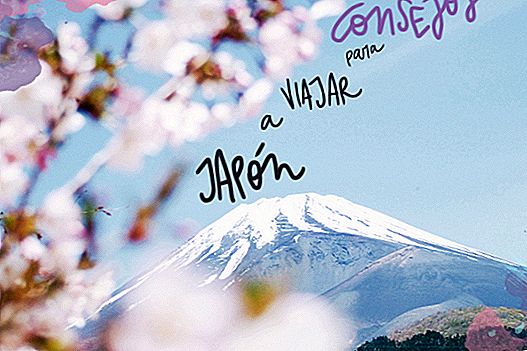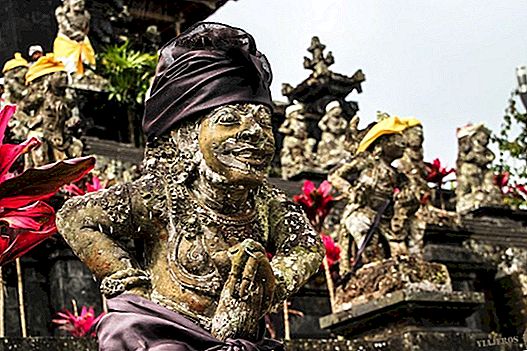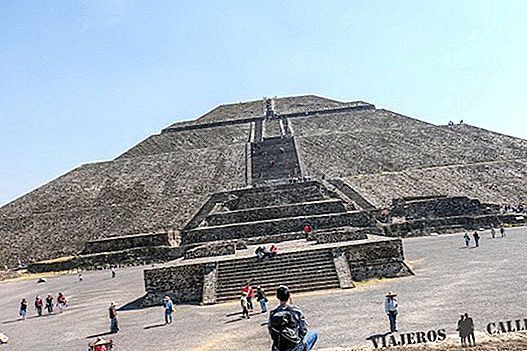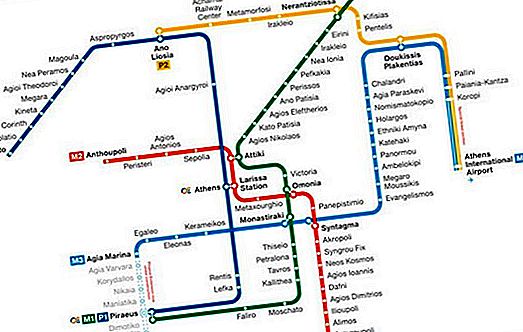
Is a visa necessary? When is the best time? And how to move? These are some of the doubts that arise when planning a trip to Japan. But there are many, many more. We have compiled all these things we would have liked to know before going to Japan in this article. We give you a few tips for traveling to Japan (and not screw it up).
Do I need a visa to travel to Japan?? Those who travel with a passport from Spain, in addition to Mexico, Argentina, Chile, Uruguay, Costa Rica, Dominican Republic, El Salvador, Honduras or Guatemala (Ecuador is pending), do not need a visa. Upon arrival in the country we will seal the passport and will allow us a stay of 90 days in the country. If you are from another nationality, you may need to apply for a visa before the trip, which you must do at the Japanese embassy in your country.
What is the best time to travel to Japan? In Japan, as in Spain, there are 4 stations. Among all, the best time for us is the spring (If you catch the hanami you are in luck!), although the autumn It also has to be a pass, especially if you are one of those who enjoy nature. We were of the idea that n winter the cold is so chunguillo and the days so short that he does not deserve to travel during those months ... peeeeero, we returned to Japan in winter and we loved it! Now yes in summer we wouldn't go: it's rainy season (tsuyu ) and the heat can be quite high (as well as the humidity).
Look at the forecasts and keep an eye on the ads. Before going from one place to another, look carefully at the website of the Japan Meteorological Agency and check for emergency notices on this link.
Eye to the Golden Week. Although we recommend traveling in spring, you have to take into account the Golden Week, which is a week between April and May where most Japanese go on vacation. If the trip catches you right on those dates, book the accommodations well in advance and try to book the trains too.
Is it expensive to fly to Japan? There are quite a few offers to travel to Japan, our advice as always is to look at websites where they compare lots of agencies and airlines like Skyscanner. In general, round-trip flights for around € 400-500 can be found quite easily from Spain.
So how much does a trip to Japan cost? We explain it in more detail in this article. But to summarize, without flights, a backpacking trip to Japan as a couple can be about € 500 per person.
What is the best itinerary? Try to include in your visit the largest number of sites that we put in our top10 in Japan. If you travel to Japan for the first time a good two-week itinerary would be:
- Osaka: 2-3 nights
- Hiroshima and Miyajima: 2 nights
- Kyoto: 3 nights
- Kanazawa or Takayama and Shirakawa-Go: 2 nights
- Tokyo: 5 nights
And during the day make the following getaways:
- Nara from Osaka
- Kobe and Himeji, if you give time on the way to Hiroshima
- Hakone and Mount Fuji from Tokyo
- Nikko from Tokyo
As you can see, the ideal thing would be to get to Osaka and leave from Tokyo, although if you find a better offer i / v from the same place I would not worry much ... moving around Japan is very simple and fast.
Will I have to move by train? The famous (and expensive) JRPass is not the only way to travel from one point to another in Japan, although it may be the most comfortable. We, for example, use a bus pass (the Willer Express). We made the trips with longer distances in night buses (and thus we saved the accommodation) and the short trips in regional trains, which are usually cheap. What raises the budget a lot are bullet trains (Shinkansen). Of course, if you finally decide on the JR Pass Remember that you will have to buy it in advance as it can NOT be purchased in Japan.
How to plan the transport? The best website to see train schedules, type and price is Hyperdia. Download the APP before arriving in Japan, it's like the bible of those who travel to Japan. Hyperdia ours, that you are on the web, hallowed be your name, tell me the train schedules to Tokyo, free us from the delays, come on!
Can I book my train seat with the JR Pass? No, if you have the JR Pass and want to book a train seat, you can only do so at the station offices, yes, up to 1 month in advance
How do I get money in Japan? We are not fans of changing money in the bank before the trip, nor use the usual cards. It is best to get a card that allows us to withdraw money and pay abroad without commissions. We, after investigating the market well, use the Bnext card as the first option, and we also arrive at the N26 card in the bedroom. It is always advisable to carry several cards in case of any failure and these two are free!
How to have internet in Japan? It is increasingly interesting to take internet on mobile on trips. Japan is no exception. Discarding the Pocket WiFi and using our data rate, we can buy a local SIM or take one from home. If you prefer to buy it once you arrive in Japan, there are several companies that have special SIM for tourists for about € 30 as BMobile or IIjm. But if you are a forecaster and want to buy and take it from Spain, the best option is with Holafly (from € 19, and if you do it with that link you have a 5% discount). Here we tell you more information.
What about the plugs? The plugs in Japan are type A, different from those in Spain, so it is advisable to carry a universal adapter in your suitcase.
Will I need to take out travel insurance? Do not travel to Japan without medical insurance, health is the most important and more when you are thousands of kilometers away from home. In Japan, health and hospitals have a very good reputation, but if you have to go to the emergency department without insurance, it is probably not cheap. Here we tell you how to choose the best travel insurance.
Do I reserve accommodation in advance? Traveling and booking accommodation on the go is not a good idea in Japan, it is more, if you travel in high season we would tell you to book them with enough time in advance. But you can always choose the “free cancellation” option of booking.com.
Any unique hosting experience? Another thing not, but Japan in terms of unique experiences is number one. Original accommodations are the capsule hotels like this one in Tokyo, and of course, sleep in a traditional ryokan in Kyoto. If you have a chance, include a night at a shukubo in Koyasan, a Japanese monastery. Here we tell you our experience.
Do you speak English in Japan? Do not worry too much about the language, it is true that most people do not have a good level of English, but this is changing rapidly and in tourist areas you will not have problems. In addition the Japanese are very attentive and even with signs, they will help you in everything they can. In case the flies, it is best to download the Google Translator APP.
Am I just going to eat sushi in Japan? Do not fall into the error of believing that in Japan you only eat sushi. Of course it is eaten, but Japanese cuisine is immense and is one of the healthiest in the world. It will be an experience to try different specialties and restaurants. In addition there are many options for tighter budgets.
Could I stay to work? If you are a fan of the Japanese country and would love to live there for a year, find out about the whv (working holiday visa). This is a visa that allows you to work in Japan for 12 months. Of course ... you have to be at most 30 years old! More info here. You also have the option of working in exchange for accommodation, look at these options.
Sunday excursion? Think twice. Try not to match the visits and excursions of famous sites on Sunday: it is the day when all the Japanese also take advantage to travel as a family and you will not be able to enjoy the site precisely alone. Just don't think that on Tuesday at 12 you will be at Fushimi Inari alone, the best advice we can give you is!early morning!
Do you usually leave tips in Japan? From what we understand, it is not that it is not common, it is that waiters, taxi drivers, etc. could even be offended.
And what about the rules of conduct? Japanese society has very different social behaviors to what we are used to. Also for them the code of conduct is something very important, so you should inform yourself a little about this so as not to screw up. For example, you should be barefoot before entering a house, never stick the sticks in the rice, do not skip the lines, say hello with a slight bow (not shaking hands and never giving kisses), do not pick up any object that seems lost Do not sound boogers in public, do not speak loudly, collect gifts with both hands (including business cards, your most valued object!) and things like that.
Do you want to visit the Ghibli Museum? Then book tickets in advance or as soon as you arrive in Japan (they can be purchased at Lawson stores). In the museum itself they are not sold and are highly valued, we wait too long and a week before we left Tokyo we could not get them.
Be a responsible tourist and don't contribute to businesses that have animals in captivity (like owl bars, for example). Here are some tips for traveling with your head.
What do I do in case of an earthquake? Japan is one of the most seismic countries in the world. When we were living in Tokyo we played one and we almost peed on each other, but the rest of the Japanese with whom we shared a house kept doing their homework as usual. You don't really have to worry too much: the country is used (and prepared) for earthquakes. Although it is not a bad idea to download the Yurekuru Call APP that warns a few moments before the arrival of an earthquake. In case it happens (and we touch wood) keep calm, stay away from windows or objects that may fall (like shelves) and look for a table where to take refuge and cover your head with your arms. If you are on the street, stay away from facades and posts or traffic lights that may fall.
Do you want to drive Make no mistake! If you want to rent a car, you will have to take the international driving license, which is taken out at a time in a DGT office for about € 10. Of course, remember that in Japan you drive on the left!
A bit of a freak memory. Don't leave Japan without having done a purikura session, the Japanese photo booths where you'll be more handsome than Sailor Moon (well, I was more of Sailor Jupiter). You will find them in virtually every mall and recreation room.
Learn some Japanese words. Phonetically it is not as difficult as you think:
- Hi = Konnichiwa
- Thanks = Arigato
- Thank you very much = Arigato Gozaimasu
- Sorry = Sumimasen
- Please = Onegaishimasu
- Good Appetite = Itadakimasu
We hope these tips for traveling to Japan help you enjoy this trip even more, you will see how it is a unique experience!

Save on your trip
Flights Cheap to Japan: bit.ly/2OFeJ13
accommodation Cheap in Japan: booki.ng/2EiDxuI
Stay withAirbnb and get€ 25 discount: here
Activities and excursions in Japan: bit.ly/2SABJjY
Rent a car with the best discounts: bit.ly/2xGxOrc
Travel insurance IATI with a5% discount: bit.ly/29OSvKt
Books and travel guides: amzn.to/2DUyyiV











